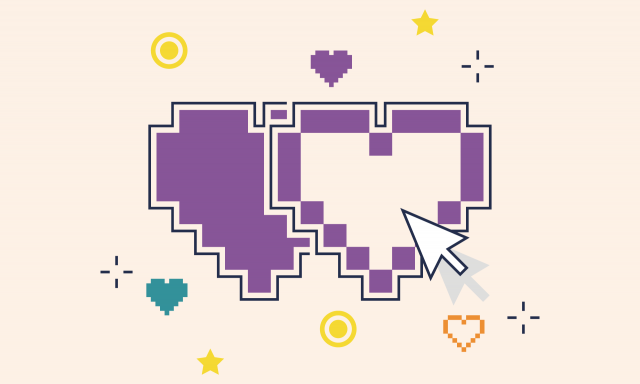

 Article
Article

 People are romantically drawn to warm, kind people who treat others well. But when it comes to how a partner treats us, we really want special treatment. Both desires stand to reason, but are they equally important? (Hint: They’re not.) What are we willing to sacrifice to get what we want from a partnership?
People are romantically drawn to warm, kind people who treat others well. But when it comes to how a partner treats us, we really want special treatment. Both desires stand to reason, but are they equally important? (Hint: They’re not.) What are we willing to sacrifice to get what we want from a partnership?

Insights from
Written by
Be good to everyone, but especially me.
People are romantically drawn to warm, kind people who treat others well. But when it comes to how a partner treats us, we really want special treatment. Both desires stand to reason, but are they equally important?
In a series of 10 experiments, Darden Professor Lalin Anik and Ryan Hauser, a Ph.D. candidate at the Yale School of Management, pitted preference for overall partner kindness against a desire to receive unique treatment from that partner. The results showed that not only do humans crave special treatment from intimate partners — we’re willing to compromise a lot to get it. This is of particular significance given the importance of trait-level generosity (attributes like warmth and trustworthiness), which previous research has shown to be one of the most sought-after characteristics in romantic partners.
“We observe a strong, multifaceted, and somewhat selfish preference for unique treatment that often overwhelms the preference for trait-level generosity,” Anik and Hauser write in an article published in the Journal of Experiment Social Psychology.
At a gut level we know this: We’d be pleased to receive a bouquet of flowers from a lover, but likely miffed if our main squeeze sent a neighbor the same arrangement. (Anik and Hauser tested this flower scenario, but then, to make sure the romantic connotation of flowers hadn’t skewed the experiment results, ran a second series of tests using a laptop case as the hypothetical gift and confirmed the finding.)
These feelings might have an evolutionary basis, Anik speculates. “Even though I want my partner to be warm and generous toward others, it’s important for me to know that if resources are limited, they are going to take care of me first,” she theorizes.
As humans, we’re wired to look for signals we’re special, and we get a mood boost when we feel our “uniqueness” affirmed. This new work sheds light on just how critical special treatment may be for relationship satisfaction.
Not only does unique treatment take a front seat to trait-level generosity, people would choose a partner who made them feel special over one who was physically attractive. And in our hunger for unique treatment, we even sometimes desire worse treatment for others.
In some cases, we might even be more satisfied with worse treatment for ourselves, as long as it’s unique; “single me out” was even more important to participants than “treat me well.” When Anik and Hauser tested people’s reactions to birthday messages, participants preferred worse treatment — a birthday message they initially deemed subpar — if their partner rarely used that message style when communicating with others. And people said they’d be happier with a worse-but-unique coffee mug rather than receive the same high-quality mug their partner had already given someone else.
“Individuals do not solely desire relatively better treatment from their partner, but instead may be content receiving treatment that is different from the treatment their partner offers others, even if such treatment is not ideal,” Anik and Hauser conclude.
However, if a partner was treating everyone badly, participants did not find value in being singled out to receive distinctive poor treatment. So, while they wanted to be called “honey” if their partner called everyone else “sweetie,” they did not prefer to be called an “idiot” from a partner who frequently called others “morons.”
People intuitively know that humans like unique treatment, but we tend to underestimate how critical it is in sparking, as well as keeping, connection. In today’s age of digital courtship, in which people meet potential partners online and cultivate relationships through social media, these insights about unique treatment are important. In a study that looked at couples’ behavior over Snapchat, participants overvalued universal messaging (posting to a story everyone could see) and underestimated how much a personalized message (sending a direct message) would boost their partner’s likelihood of replying.
Another one of the paper’s studies provided preliminary evidence that people prefer unique treatment from close friends, too, though not necessarily from acquaintances. And yet another suggested that people may reward others who treat them uniquely compared to those who don’t, even if the behavior is the same — that is, you might be more likely to grab coffee with a coworker who’s nice to you and indifferent toward others but might decline the invitation from a coworker known to be nice to everyone.
The authors note that these results may apply to business and recommend brands further explore how to use the information in relationships with customers. After all, making consumers feel special with tailored offers and exclusive discounts can woo them into brand loyalty and increased purchases.
Ultimately, conclude Anik and Hauser, “understanding how others desire, receive and offer unique treatment is well worth it for the scientist and the spouse alike, as these preferences and behaviors have significant implications for psychological research and the ways people initiate, evaluate and maintain their romantic relationships.”
Lalin Anik co-authored “One of a Kind: The Strong and Complex Preference for Unique Treatment From Romantic Partners,” which appeared in the Journal of Experimental Social Psychology, with Ryan Hauser of the Yale School of Management.